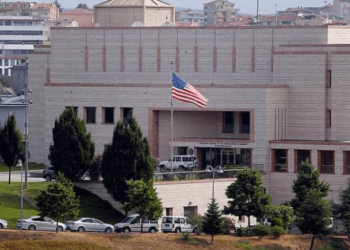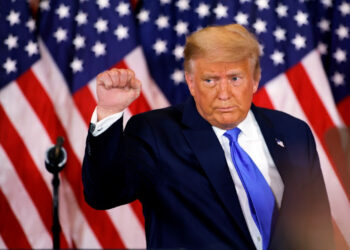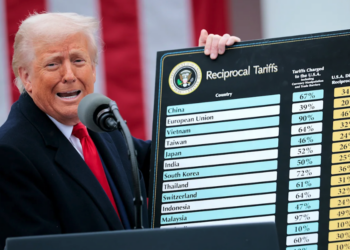Several days after the rising American dollar was causing damage in global financial markets, President Donald Trump has decided that a powerful U.S. dollar is a good thing after all.
“The dollar is very strong,” President Trump said at a press conference recently, and global investors seem to agree with him. The quick rise in the dollar in March was a symptom of a global urge for cash by investors seeking a haven from the financial havoc caused by the COVID-19 outbreak.
Anthony Okafor, PhD, ACCA, Head of Investments & Strategy at Vyne Investment Partners, in an interview with Nairametrics via phone, spoke about the reasons why the dollar remains so powerful. He said:
“Ever since the first U.S dollar was introduced in 1914, the dollar has remained strong, backed by the strength of the U.S economy.
“The strength of the dollar was further reinforced following the Bretton Woods Agreement to recognize the U.S dollar as the reserve currency of the world. More than 65% of foreign bank reserves are denominated in U.S dollars.
According to him, the dollar is the dominant currency, benefitted the U.S economy significantly and helped in stabilizing the currency adding that the economic boom that followed the world war also led to increased trade surpluses between developing nations and U.S, leading to an elevated level of global savings with the U.S. These funds were invested in U.S bonds and stocks.
“Today, foreign investors hold about $31 trillion in dollar-denominated assets. While countries like China and Japan have trillions of dollars in reserves to support their currencies, the U.S has only about $130bn in reserves to support the currency, should there be a need to support the dollar.
“The strength of the dollar has been partly maintained by its historical link to gold prices, goodwill, the stability of the country’s political system and economy.”
(READ MORE: Demand for “Inflow dollars” drive exchange rate to as high as N420/$1 compared to…)
In addition, emerging markets and developing countries like Nigeria have increased their exposure to dollar-denominated debt in recent years. Nigeria faces weak demand for its exports, due to the shutdown of many businesses around the world, and surging costs to service its dollar debts as the greenback increased in value against the naira.

Princejoe Nnaji, a leading financial analyst in a top tier Nigerian bank, buttressed why the dollar plays a key role, in a phone interview with Nairametrics, saying:
“The Dollar is a universally accepted currency for trade throughout the world and holds the title as the world’s reserve currency with over 50% of countries holding their foreign exchange reserves and pegging their currency to the dollar.
“Key indices around the world have its significant portion linked to the dollar including but not limited to: Foreign debt issuance & Foreign exchange trading. The confidence the global community attributes to the currency is closely linked to the trust the world holds in United States’ ability to pay its obligations without default.
He added that for the significant section of the Nigerian populace, noting that the dollar is king because it’s seen as a store of wealth. There is a certainty that over time that it will support its value without depreciating against the naira.
“Despite the ban on the 45 items/products by the central bank governor, Nigeria is still largely import-dependent due to our preference for imported products and this affects domestic prices of goods. They hold dollars to protect themselves against domestic inflation.
“However, another section of the populace sees it as a source for arbitrage opportunities and holds it for speculative purposes. They hoard dollars to make profit when the naira depreciates against the dollar.”
(READ MORE: Naira drops to N387.65 per dollar, as crude oil prices plunge to $27)
As stated by Trump, when pointing to Friday’s stock market advance, “Everybody wants to invest in our country. People want the safety of our country.”
“Cash is coming in even though American interest rates are at record lows…We’re paying almost zero interest, like in some cases zero,” he added
Showing the advantages of a strong dollar, President Trump in a sense went back to the stance of past U.S. administrations that viewed a strong dollar as being in America’s interest.























